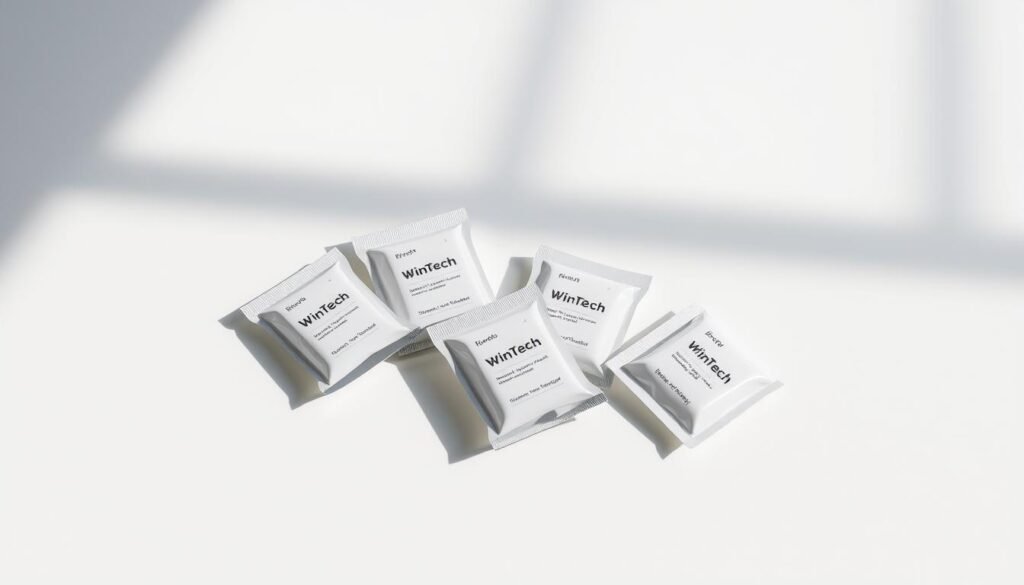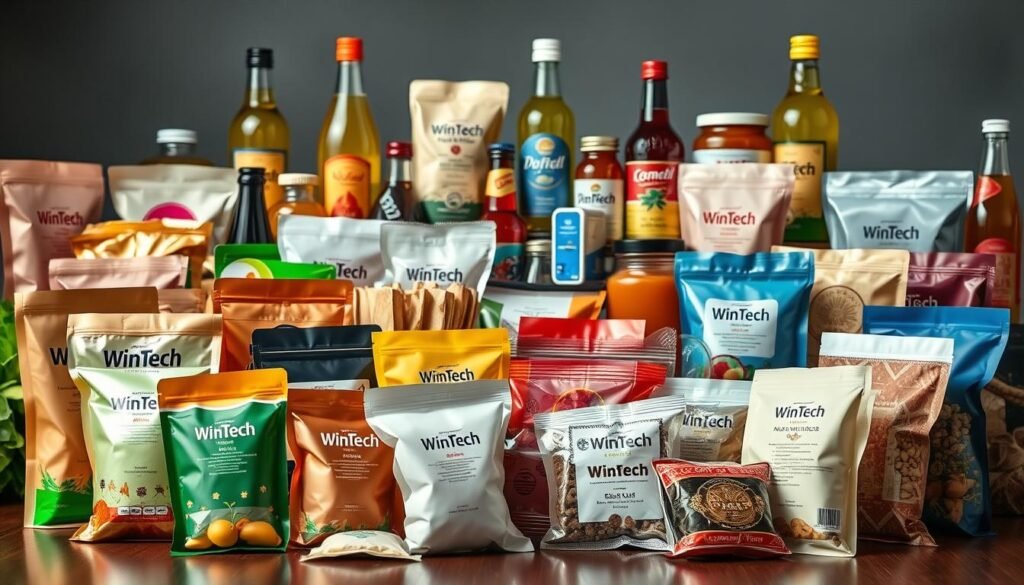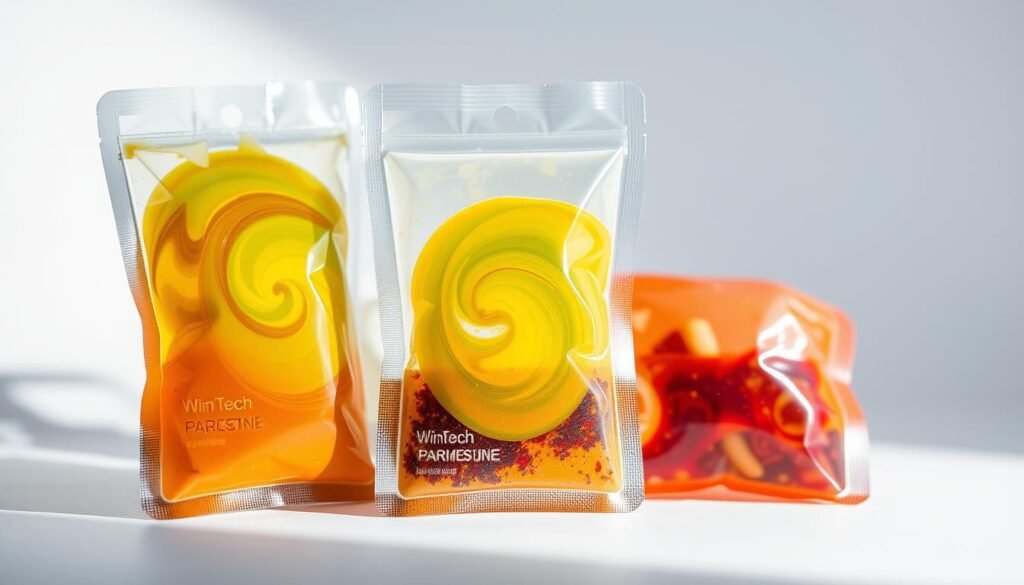Have you ever wondered how manufacturers ensure the quality and longevity of your favorite fermented products? What are sachets and why do they play a critical role in maintaining product stability? Understanding what are sachets reveals a fascinating world of packaging innovation that protects product integrity from production to consumption.
Single-use packets, commonly known as sachets, represent a revolutionary approach to product packaging. Wintech Package and other industry leaders utilize what are sachets as precision tools for stability testing. These small, sealed containers are crucial in preserving the potency of fermented products, ensuring that consumers receive high-quality items with consistent performance.
What Are Sachets and why Sachets in skincare and food industries demonstrate remarkable capabilities in protecting sensitive formulations. By creating controlled environments, these innovative packaging solutions prevent contamination and maintain the essential characteristics of delicate products throughout their shelf life.
Key Takeaways of What Are Sachets
- Sachets are critical for maintaining product stability and quality
- Single-use packets protect sensitive formulations from external contamination
- Stability testing ensures consistent product performance
- Sachets provide precise control over product preservation
- Innovative packaging solutions extend product shelf life
What Are Sachets: Understanding Their Composition and Benefits
Sachets have revolutionized small portion packaging across multiple industries, offering a compact and efficient solution for product distribution. These tiny packets are designed to protect and preserve contents with remarkable precision. When you think about what are sachets, imagine a versatile packaging format that delivers single-use quantities of products while maintaining freshness and quality.

Food sachets represent a critical innovation in packaging technology. They provide consumers with convenient, controlled portions that minimize waste and enhance product preservation. The primary goal of these small portion packaging solutions is to protect contents from external environmental factors like moisture, light, and oxygen.
The Core Definition of Sachets
A sachet is a small sealed packet typically made from multiple layers of materials designed to protect and preserve its contents. These packaging solutions come in various sizes and configurations, tailored to specific product requirements.
- Protect sensitive products from environmental degradation
- Provide precise portion control
- Enhance product shelf life
- Minimize packaging waste
Key Materials in Sachet Manufacturing
Manufacturers utilize diverse materials to create effective sachets. The most common materials include:
- Aluminum foil for maximum barrier protection
- Multilayer plastics for flexibility
- Specialized paper composites for specific applications
- Biodegradable materials for sustainable packaging
Critical Design Considerations
Sachet design goes beyond mere containment. Strategic engineering ensures product integrity, user convenience, and optimal preservation. Manufacturers must balance material strength, barrier properties, and ease of use when developing these compact packaging solutions.
“Sachets represent the intersection of innovation, convenience, and product protection.” – Packaging Innovation Expert
What Are Sachets: Applications in the Food & Beverage Industry
Sachets have revolutionized product packaging across the food and beverage industry, offering innovative solutions for preserving ingredient quality and extending shelf life. Understanding what are sachets becomes crucial for manufacturers seeking advanced preservation techniques.

Manufacturers are increasingly turning to sachets as a sophisticated packaging method that protects sensitive ingredients from environmental degradation. These compact containers provide exceptional barrier properties against moisture, oxygen, and light.
Sachets in Fermentation Processes
When exploring what are sachets in fermentation, you’ll discover their critical role in maintaining product integrity. Sachets enable precise ingredient delivery and protect delicate microorganisms during complex fermentation processes.
- Protect probiotic cultures during storage
- Maintain enzyme stability
- Prevent contamination
- Ensure consistent fermentation results
Benefits of Using Sachets for Product Stability
Comparing sachets vs packets reveals significant advantages in preservation. Tea sachets, for instance, demonstrate remarkable stability in challenging environmental conditions.
| Packaging Type | Moisture Protection | Oxygen Barrier | Light Protection |
|---|---|---|---|
| Traditional Packets | Limited | Moderate | Poor |
| Advanced Sachets | Excellent | Superior | Highly Effective |
Case Studies on Sachet Utilization
Real-world applications demonstrate how sachets transform product preservation. Probiotics incorporated into dietary supplements can now maintain stability for up to 24 months at ambient temperature, showcasing the remarkable potential of sachet technology.
Sachets represent a game-changing solution in food and beverage packaging, offering unprecedented protection for sensitive ingredients.
What Are Sachets: Evaluating Performance and Longevity
When exploring the world of sachets, understanding their performance becomes crucial for manufacturers and consumers alike. What are sachets beyond simple packaging? They represent sophisticated delivery systems designed to protect and preserve product integrity across various environments. Your product’s stability depends on selecting the right sachet technology that can withstand different temperature and humidity conditions.
Travel sachets and disposable sachets require rigorous testing to ensure they meet industry standards. Researchers conduct comprehensive stability studies that evaluate material strength, sealing techniques, and environmental resistance. At Wintech Package, advanced testing protocols help determine the precise performance metrics for sachets used in food, pharmaceutical, and consumer product applications.
Material quality plays a significant role in sachet effectiveness. Innovative manufacturers now develop sachets for samples using advanced polymers and barrier technologies that enhance product protection. Your selection of sachets should consider factors like oxygen transmission rates, moisture resistance, and potential chemical interactions with the contained product.
Future sachet technology promises exciting developments in smart packaging and sustainable materials. Emerging trends focus on creating eco-friendly solutions that maintain product stability while reducing environmental impact. By investing in cutting-edge research and development, companies can create sachets that meet the evolving demands of the United States market.

